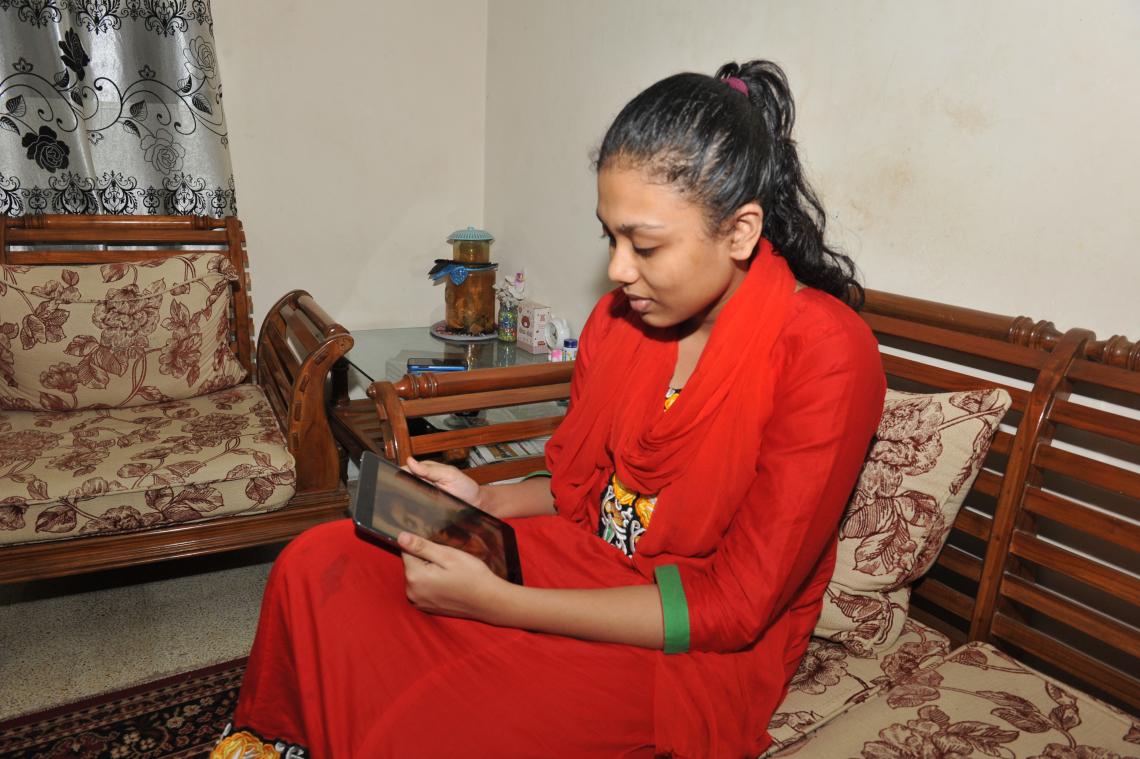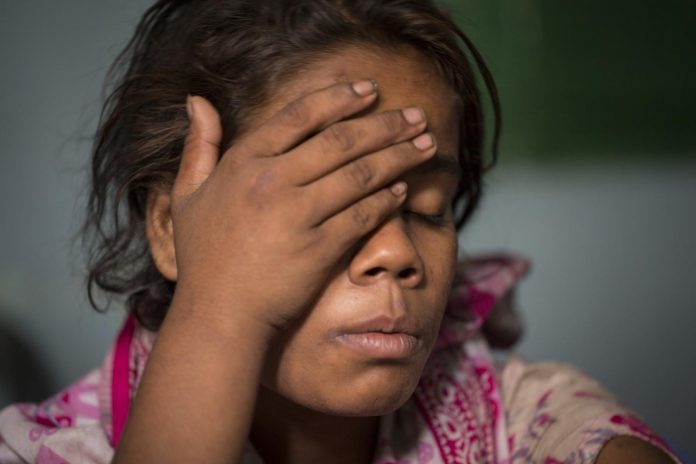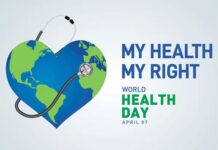Dailynewsun News Desk
Sixteen-year-old Era (pseudo name) from Narayanganj in Bangladesh fell for a boy online. At first, they used to chat on Facebook Messenger. Later they exchanged voice messages and then started talking on the phone. Before she realized, Era became emotionally involved with the boy. But little did she know about his true intent.
As the pair became closer, the boy made repeated requests to Era to share intimate photos. At first, she vehemently opposed the idea, but later she relented to his persistent demands. As soon as she complied, the boy’s attitude changed overnight. He threatened that if she did not have a physical relationship with him, he would publish the photos online. He extorted Tk 1,000 (USD 12) from Era and threatened to expose her if she did not give him Tk 4,000 (USD 48) more.
Fearing great shame for her family and dreadful social consequences, Era decided to commit suicide. But first in a desperate plea for help, she called the Child Helpline 1098 operated by Department of Social Services with support from UNICEF.
Lurking virtual Predators
“As children’s screen time has increased during the lockdown, so have the risks for children. They are in danger of being exposed to inappropriate content and online predators. The Child Helpline is part of a larger UNICEF programme to strengthen child protection systems under the Department of Social Services, and it offers a lifeline for many children and young people,” said Natalie McCauley, Chief of Child Protection, UNICEF Bangladesh.
Between April and August 2020, the Child Helpline 1098 provided psychosocial counselling to nearly 70 suicidal adolescents, mostly girls.
During COVID-19 restrictions, many adolescents and young people turned to the internet and social media to connect with one other. Some became embroiled in harmful virtual relationships as they spent more and more time online.

“We cannot tell if suicide has increased during the pandemic. Earlier, we received calls primarily from adolescents who wanted to take their lives for a myriad of reasons. Now it’s mostly related to cybercrimes, betrayal in virtual relationships, and personal conflict with family members and peers,” explains Chowdhury Md. Mohaimen, Manager, Bangladesh Child Helpline 1098, Ministry of Social Welfare.
“If schools and other educational institutions were open, this level of virtual dependence could probably have been avoided,” adds Mohaimen.
Online safety – sounding the alarm
An online survey conducted by UNICEF in 2019 warned of the dangers posed online, with 32 per cent of children aged 10 to 17 experiencing cyberbullying and digital harassment in Bangladesh.
In response, UNICEF partnered with the Ministry of Posts, Telecommunications and Information Technology to develop a training course for children on online safety to prevent online violence and to minimize the growing risks faced by children and adolescents. One million school children are targeted to receive an online safety certification by 2021, with 280,000 children trained and certified to date.
In a separate initiative, UNICEF is partnering with telecommunications provider Grameenphone to promote online safety to 2.5 million students and adolescents through online platforms, tv and radio, while sensitizing 200,000 parents, guardians and teachers through webinars and a national communications campaign.
UNICEF has also stepped up psychosocial counselling to improve the mental wellbeing of children, reaching about 200,000 children and their families with remote support during COVID-19.
Compelling need for a safer internet
If Era had not contacted the Child Helpline 1098, she might not be alive today. The helpline workers provided counselling and reassurance to Era. Speaking with her frequently over several days, they eased her worries and suicidal thoughts, and assured her the offender would face justice.
The helpline workers solicited support from Era’s elder sister and helped her lodge a complaint against the boy in the local police station.
Soon afterwards, with the assistance of social service officers with the Child Helpline mobile team and local police, the perpetrator was arrested.
As the pandemic continues and schools remain closed, UNICEF continues to scale up interventions that support a safe online experience for children for children. With better awareness and digital literacy skills, children can harness the positive power of digital interaction, and can connect with each other free from violence, bullying and exploitation.
The report has been released on UNICEF website.
































